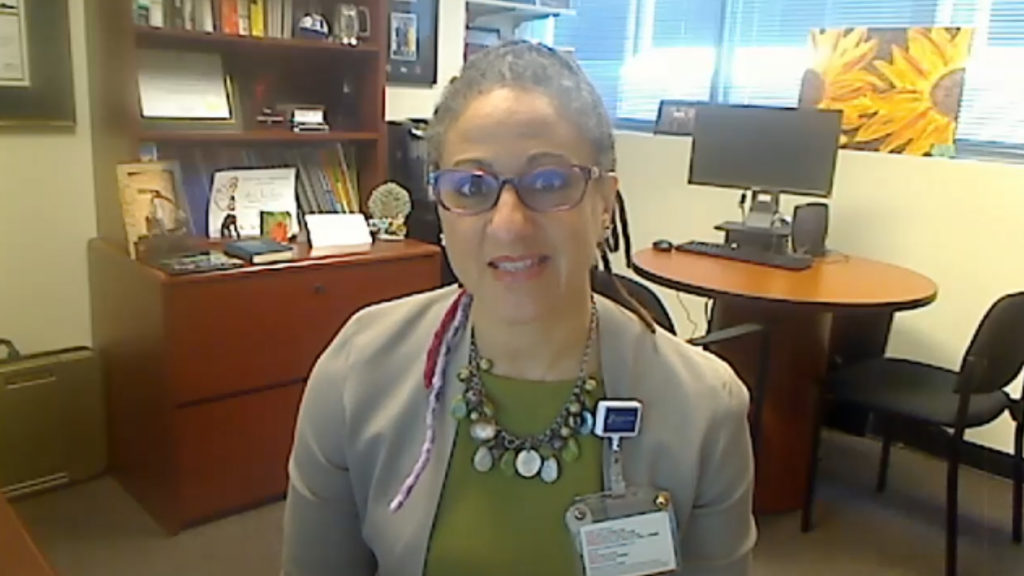Cystic Fibrosis
An Introduction to Cystic Fibrosis
Landmark research characterizing genetic drivers and protein malformations underlying cystic fibrosis (CF) is successfully translating into new and effective targeted therapies. Recently approved agents that ‘pharmacologically repair’ defects in the cystic fibrosis transmembrane conductance regulator (CFTR) arising from the F508del-mutation have revolutionized the treatment paradigm in CF. Ongoing studies are exploring restorative interventions including gene-editing, messenger ribonucleic acid (mRNA), DNA and gene therapies. More effective strategies to manage infections and pulmonary exacerbations in CF remain an active area of clinical research.
Browse our selection of video highlights and short articles from the conference hub, providing insights into the latest updates from major conferences and a selection of peer-reviewed articles from the journal portfolio.

Physician burnout is at a critical point. In this episode, Nicky speaks with Dr Alfred Atanda about why so many physicians are burning out and what can be done to change the trend. From personal experience to system-wide solutions, Dr Atanda shares valuable insights on improving physician well-being and building a more effective healthcare culture.

In this episode, we explore the future of continuing medical education (CME) with the team behind touchIME. Hannah Fisher and Matthew Goodwin share insights into global and US trends, the importance of patient inclusivity and how educational outcomes are evolving to better measure the direct impact of learning on clinical practice and patient care.

As part of our Future Leaders series, we speak with Dr Helen Gavillet, a post-doctoral researcher at Northumbria University (UK) and Rising Star at RTI 2025. Dr Gavillet's research focuses on the lung microbiome in cystic fibrosis, particularly bacterial and fungal dynamics. Her research also examines the impact of CFTR modulators like elexacaftor/tezacaftor/ivacaftor on respiratory microbiota.

A recent single-arm, phase 3 study (RIDGELINE VX21-121-105)1 published in The Lancet Respiratory Medicine2 has shown positive results for vanzacaftor–tezacaftor–deutivacaftor in treating paediatric cystic fibrosis (CF) patients, demonstrating improvements in lung function, sweat chloride levels and quality of life. This trial focused on children aged 6 to 11 years, a group often excluded from studies involving adults or older children, as well as key ages for CF treatment.

Cystic fibrosis (CF), an inherited disease affecting all races and ethnicities, results from defects in the cystic fibrosis transmembrane conductance regulator (CFTR) gene, which leads to dysregulations in the ion and fluid balance across epithelial membranes throughout the body.1–3 The ...

Welcome to the latest edition of US Respiratory & Pulmonary Diseases, which features a diverse range of articles reflecting the wide spectrum of respiratory disease. We begin with a focus on chronic obstructive pulmonary disease (COPD), the third leading cause ...

Welcome to the latest edition of European Respiratory & Pulmonary Diseases. The past decade has seen numerous advances in the field of respiratory care, and yet respiratory disease remains a leading cause of death and disability worldwide. This edition features ...

Cystic fibrosis (CF) is caused by mutations in a single gene; treatment burden is high and life expectancy is significantly shortened (median age of survival in the UK is ~40 years). Although CF is a multi-organ disease, chronic lung infection and ...

Case Presentation The patient described was diagnosed with cystic fibrosis (CF) at 2 years of age. She was pancreatic insufficient and had an F508del homozygous genotype. Her pretransplant CF-course was complicated by CF-related diabetes, chronic sino-pulmonary colonization with Pseudomonas aeruginosa (...
Latest articles videos and clinical updates - straight to your inbox
Log into your Touch Account
Earn and track your CME credits on the go, save articles for later, and follow the latest congress coverage.
Register now for FREE Access
Register for free to hear about the latest expert-led education, peer-reviewed articles, conference highlights, and innovative CME activities.
Sign up with an Email
Or use a Social Account.
This Functionality is for
Members Only
Explore the latest in medical education and stay current in your field. Create a free account to track your learning.







